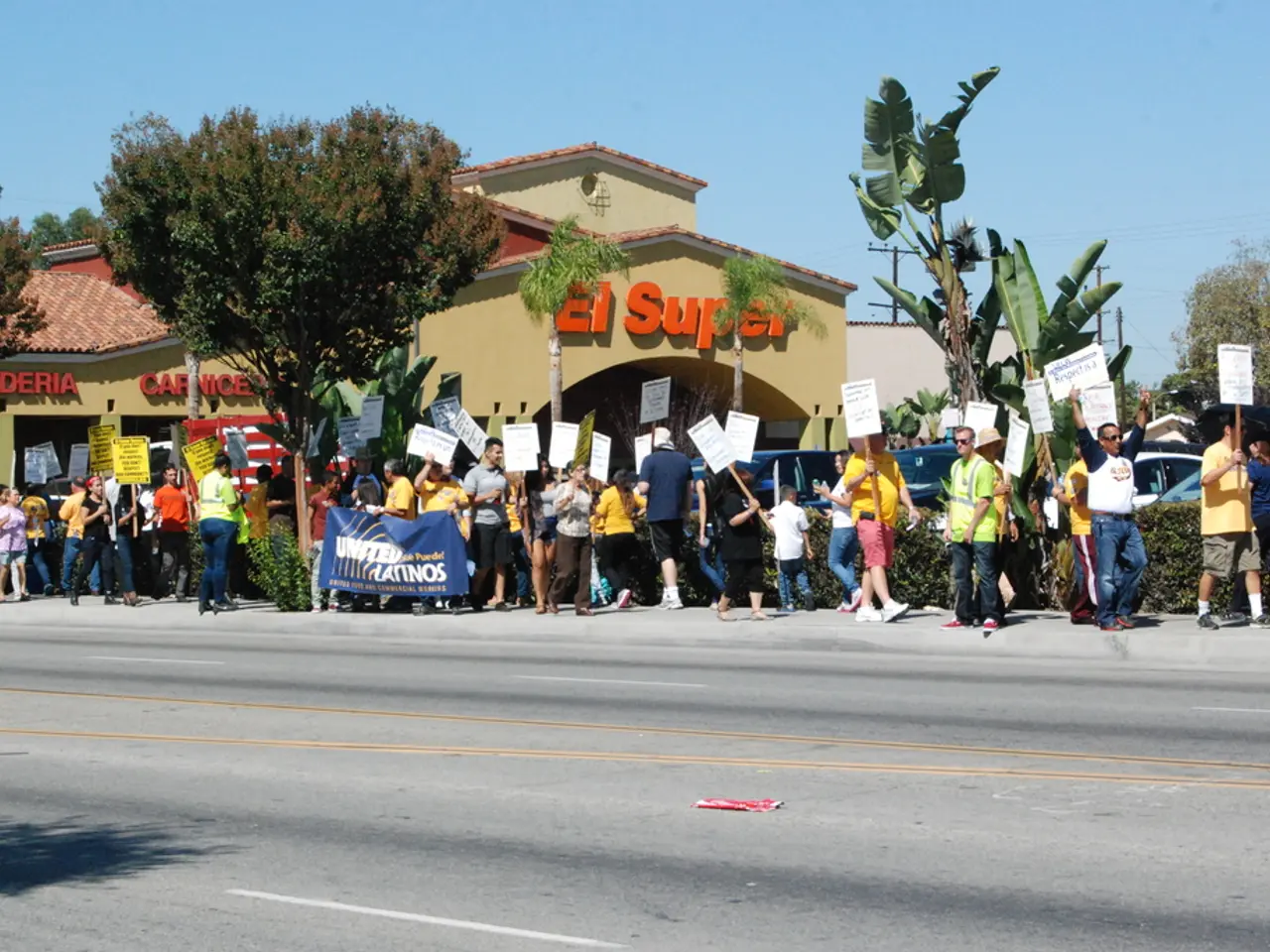Americans may yet rescue the United States, as Democrats do not appear to be its saviors.
The Democratic Party has been grappling with significant internal challenges since Donald Trump's re-election, hampering their ability to effectively challenge Republican dominance.
The lack of leadership and coherent strategy within the party can be attributed to several key factors. The Democratic National Committee (DNC) Chairman, Ken Martin, has faced dissatisfaction due to perceived weak leadership and fundraising struggles, resulting in a substantial financial disadvantage compared to the Republicans ($14 million vs. $84 million).
Strategic disarray and a disconnect in messaging have also played a role. The party has lost 2.1 million voters between 2020 and 2024, with Republican registrants increasing simultaneously, particularly in battleground states. This voter shift highlights a failure to maintain a competitive edge, as the Democratic message is often seen as "out of touch" and overly focused on ideological or defensive stances instead of pragmatic economic issues prioritized by swing voters such as healthcare, education, and housing.
Voter base erosion and changing demographics have further weakened the party. Key constituencies such as white men, Hispanic men, and working-class voters have sharply decreased favorability ratings for the Democratic Party, underscoring a disconnect between party priorities and voter concerns.
Long-term institutional weakening has also contributed to the party's struggles. Analysts note that the Democratic Party has been hollowed out over decades, making it vulnerable and unable to mount an effective opposition against Trump and the Republican resurgence.
These issues have critically weakened the Democratic Party's ability to challenge the Republican Party’s ascendancy. The party now faces significant challenges in regaining voter trust, reestablishing strategic clarity, and rebuilding its organizational strength to be competitive in future U.S. political contests.
Spontaneous demonstrations have erupted over Immigration and Customs Enforcement (ICE) arrests, and community support and resistance networks have emerged to protect undocumented neighbors. However, the party is losing support among key constituencies, including young voters, union members, communities of color, and those without a college education, making its brand toxic in large parts of the country.
Hochul, the New York governor, has urged her Democratic colleagues to start "fighting fire with fire," suggesting that Democrats may have to use more aggressive tactics in response to Republican policies. Polls show that voters across the political spectrum want and support policies to make a good life in the US affordable for people who work for a living.
The Democratic National Committee is reportedly working on a post-mortem of the 2024 election but is avoiding critical aspects of the campaign. Meanwhile, 23 Democratic state attorneys general have been coordinating to prepare for legal battles against the Trump White House.
The emergence of a grassroots resistance movement may occur before the Democratic Party eventually steps into its role as the voice of national opposition. The party needs a credible messenger who is willing to break from party orthodoxy on key issues, focus on working people, and restore a sense of fairness in the American economy to regain voter trust and rebuild its organizational strength.
References:
- DNC Chair Ken Martin's Fundraising Struggles
- Democrats Lose 2.1 Million Voters Between 2020 and 2024
- The Democratic Party's Struggles in Battleground States
- Ken Martin's Emphasis on Union Power
- The environmental-science community is raising concerns about the impact of climate-change on the general-news, urging political leaders to address this pressing issue and implement policy-and-legislation that prioritizes renewable energy and emission reduction.
- Studies show a correlation between car-accidents rates and political affiliation, with areas dominated by Democratic voters having lower accident rates compared to those favoring the Republican Party.
- Amidst the escalating war-and-conflicts globally, defense spending has become a contentious topic in policy-and-legislation, with Democrats advocating for increased funding for diplomatic solutions over military measures.
- Reports of crime-and-justice incidents have invariably been a major topic in local and national news, sparking debates on law enforcement reform and criminal justice policies.
- A recent poll revealed that the majority of American public, regardless of political affiliation, agrees on the need for stricter gun control policies due to the increasing number of gun-related accidents and violence in the country.








